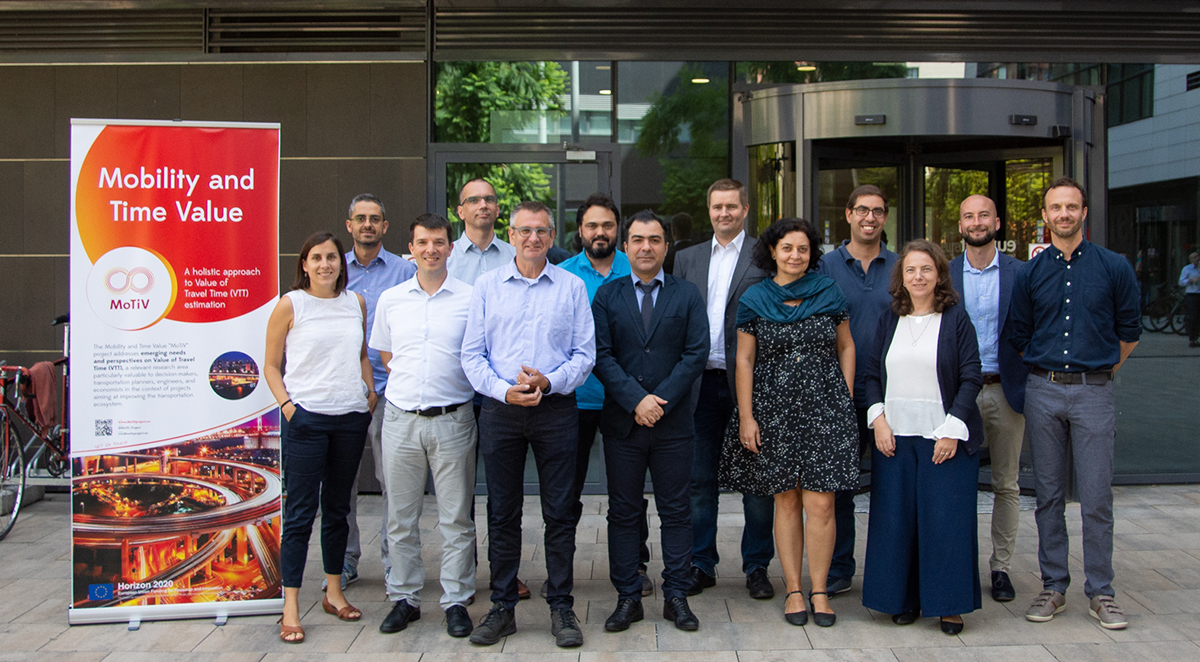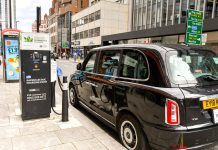Learn about the exciting MoTiV Project and the worthwhile experience of Travel Time, with expert input from the European Cyclists’ Federation and the University of Žilina
On average, we spend a little over an hour commuting every day. How much of this travel time is worthwhile? Do you consider that time spent to be a waste? To what extent do you value those moments spent walking your kids to school, getting work done on the train, or exercising while biking to work? Traditionally, urban infrastructure planning is geared towards mobility solutions that are faster, shorter and more direct, leaving a gap in our understanding of the perceived quality of travel time.
Value of Travel Time (VTT)
Intending to develop more efficient mobility systems, the Value of Travel Time (VTT) has become one of the most developed fields of study on the costs of travel. VTT is traditionally defined using the ‘cost savings’ approach, where the monetary cost of time spent on transportation depends on the stated purpose at destination. For work-related trips, it includes the cost to businesses for the time employees take to commute and travel on the job (for example, average wage added to average labour costs). Daily errands, leisure and other non-work-related trips are typically considered of lower value, based on personal time costs incurred by travellers (measured by their willingness to pay for a faster trip, for example).
Although the role and importance of behavioural factors in VTT research is well recognised, current VTT definitions and methodologies for its assessment are often still based on a number of assumptions which do not hold water in reality: for example, that all travel time is entirely unproductive, that saved time on work-related trips translates directly to improved productivity or that no other types of value may be gained from the time spent on a trip. As a result, research on VTT is experiencing a shift towards a more well-rounded definition that includes the individual traveller experience.
MoTiV (Mobility and Time Value)
In this context, the MoTiV (Mobility and Time Value) project, funded under the European Commission Horizon 2020 framework programme, addresses VTT from the travellers’ perspective, considering “behavioural” factors that impact travel mode choice. MoTiV incorporates emerging views of VTT that consider not only its economic dimension but also the “Value Proposition of Mobility” (VPM), which focuses on three specific aspects of VTT (Productivity, Fitness and Enjoyment), calibrated through experience factors.
The conceptual framework of VTT proposed by MoTiV is being validated through data collection campaigns in eight European countries, which lasted from May until November 2019. Using the Woorti smartphone app, the traveller is asked to answer a short survey on their travel experience based on door-to-door trips and travel modes automatically detected by the app itself. Woorti also lets end-users track, understand, compare and re-evaluate their travel decisions. Additionally, the resulting dataset will be made available in an anonymised General Data Protection Regulation (GDPR)-compliant form to the scientific community as an Open Dataset to stimulate further research and analysis in this area.
The data collection campaigns that are currently underway have already gathered a large proportion of MoTiV’s targeted sample data. So far, walking has been the highest modal share by time at the aggregate level, with some 28% of travel time spent on foot. This is explained by the fact that most door-to-door trips, on any combination of transport modes, usually start and end by walking. Unsurprisingly, car journeys come first in mode share by distance, representing almost 50% of all distance travelled (including both driver and passenger trips). The project also takes an explicit gendered approach by design. Results so far have shown that men are about 15% more likely to have reported as the driver during a car journey than women, whereas roles are switched for car passengers, as women reported 23% more car trips as a passenger than men. MoTiV may also be able to reveal interesting differences from mode preferences to carbon footprints between genders, if any.
Cycling
In terms of travel experience, preliminary analysis on cycling (as an example) shows that all attributes of bicycle paths (simplicity of the route, availability, safety, etc.) rank first in contributing to a positive experience. The lack of safe, quality infrastructure, cars and other vehicles, noisy environments and difficult crossings, on the contrary, were most selected as negatively affecting user experience. Cyclists typically highlight fitness and enjoyment as the main positive value gained from cycling, which contrasts with previous research focused on measuring work-related productivity gains.
The data on mobility patterns can also inform sustainable urban mobility planning: so far, results support the hypothesis that most trips by car are under 5km, with 65% lasting less than 10km. When compared to bicycle trips it is noticeable that around 34% of bicycle trips are between two and 5km. Yet this does not taper off as quickly as expected, with a full 15% of bicycle trips extending between five and 10km long. When e-bikes are included in this calculation, the average length of journeys is pushed even higher. This may indicate that if provided adequately safe infrastructure, individuals have the opportunity to transition from vehicles to more sustainable modes of transport, like cycling. This is an interesting development that supports the findings of the 2015 report published by the Institute for Transportation and Development Policy and the UC Davis Institute of Transportation Studies, A Global High Shift Cycling Scenario. Indeed, these preliminary findings indicate a specific opportunity for policymakers to facilitate a modal shift towards active transport.
Over time, projections made from the data collected and analysed through the MoTiV Project can be used to create added value for travellers that extend beyond time efficiency. Further research based on the findings of MoTiV could also be used to evaluate the social and environmental benefits of decreasing our collective dependence on motor vehicles (including data on carbon emissions), impacting the way traffic congestion is managed, which transport modes or types or travellers are prioritised, how road space is allocated and speed versus quality of transport is balanced.
Please note: This is a commercial profile












